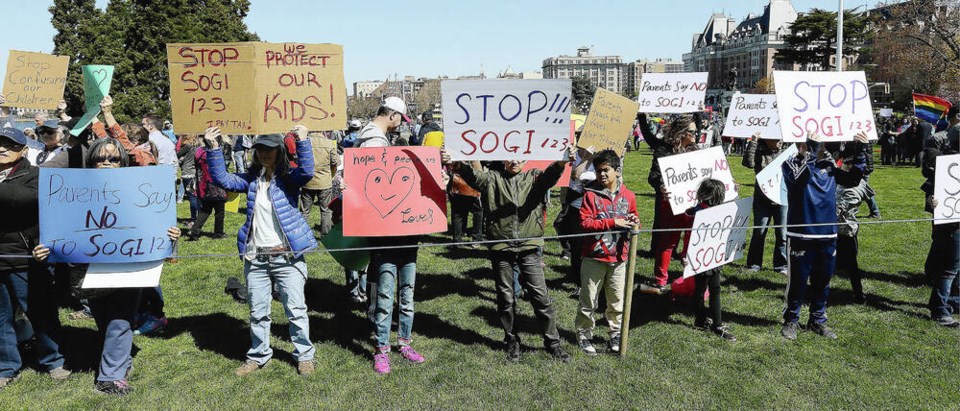The new year is a good time to re-examine the roots of some frenzied group behaviours, ranging from trucker blockades to unruly disruption of school board meetings, behaviours that threaten to undermine any faith the public has left in the political, legal and judicial systems.
Let’s begin with the increasingly common disruptions of school board meetings.
When Neil Nevitte, professor of political science at the University of Toronto, published his book The Decline of Deference in 1996, he could not have foreseen that his scholarly if theoretical analysis of changing Canadian values and attitudes to authority at all levels would have become everyday realities by 2023. Nevitte tracked data from the World Values Survey, a global research effort begun in 1981 that studies people’s values and beliefs, and how those mindsets change over time, with resulting social and political effects on our culture’s behaviour.
For example, the World Values Survey measures and analyzes the evolving acceptability of political support for tolerance of foreigners, gender equality and gender diversity, as well as attitudes toward the environment, family and politics at all levels.
Nevitte’s book points out that since the 1980s, Canadians have experienced unrest on an unprecedented scale and on a variety of fronts.
Even back in 1996, Nevitte sought to explain the turmoil we now see at some school board meetings — events that had always been models of decorum to the point of being dull.
Not anymore.
In September, an Abbotsford school board meeting was forced to end early after hundreds of protestors showed up to oppose the teaching of sexual orientation and gender identity (SOGI) in schools. Video posted to social media shows protesters confronting school board trustees, chanting: “Leave our kids alone.” Trustees had to be escorted out by police only 30 minutes into the meeting, according to the Abbotsford School District.
Last June, the final Surrey school board meeting of the school year ended abruptly, after a group of parents and other adult anti-SOGI protesters disrupted question period by yelling through a megaphone and calling for trustees’ resignations.
Protesters were ill-informed inasmuch as learning about SOGI is not “mandated,” and is not a B.C. curriculum requirement. Schools, however, must be in compliance with the Human Rights Code and “demonstrate that they are creating safe, welcoming, and inclusive environments.”
The group held up posters and wore labelled clothing protesting the inclusive framework of teaching in schools. Some teachers and trustees, who had to be escorted to their cars by police following the meeting, described the protest as “aggressive” and “shocking.”
In his extraordinarily prescient book, Nevitte theorized that the changing patterns of Canadian values are connected to changing attitudes to authority in the family which, in turn, are connected to changing attitudes to politics at all levels.
All, however, align to one theme — the decline of deference.
Canada’s turmoil is not unique, suggested Nevitte, nor is it a result of an “Americanization” of Canadian values. This despite the fact that UCLA education professors John Kahne and John Rogers, in a recent op-ed piece in the Los Angeles Times, wrote: “Over the last several months, school board meetings across the U.S. have become ground zero for contentious and destructive battles. The vitriolic political rhetoric and threatening behaviour are posing a serious threat to democracy.”
Two Ontario school boards, Waterloo Region District School Board and Renfrew County Catholic District School Board, took an assertive approach to fighting back against the intrusion of anti-LGBTQ bigotry in their school communities, in the form of open letters addressing their stances on the issue.
One of the largest and most active groups organizing school board protests about issues around SOGI in particular is Action4Canada, a broad Christian nationalist organization with chapters across the country. The organization lends its voice to a variety of social issues, often using overtly racist and homophobic rhetoric in the process.
A 1997 op-ed by Howard Schneider in the Washington Post (of all places) wonders if “according to what seems to be an emerging consensus, the image of Canada as a deferential culture, is a thing of the past.”
Nevitte goes a step further, contending that “this happens when the skill gap between politicians and citizens has narrowed, so Canadians are less inclined to accept without question the wisdom of their leaders.”
Geoff Johnson is a former superintendent of schools
>>> To comment on this article, write a letter to the editor: [email protected]



